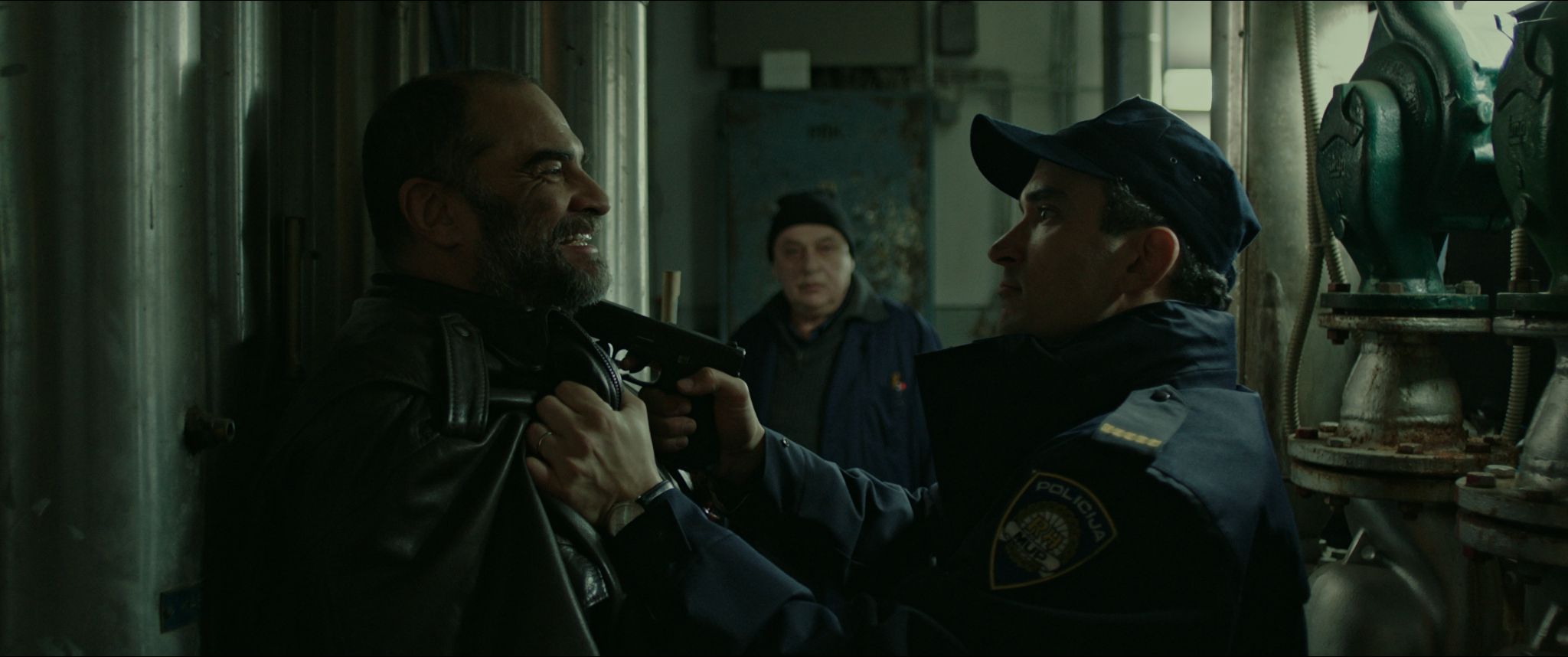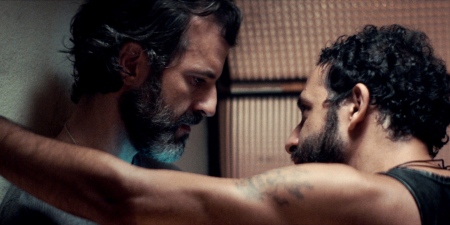Now Playing
Current DJ: Commodore Jones
Microwave Trash Stains from Stovall (self-released) Add to Collection
Requests? 773-DJ-SONGS or .(JavaScript must be enabled to view this email address)

written by Kyle Sanders as part of his coverage of the 2019 Chicago International Film Festival
Fatherhood can be hell. While parental responsibilities continue to change in our ever progressing sense of parenthood, the role of the father still tends to be looked upon as a source of security, to provide that "everything will be alright" feeling when the going gets tough. But sometimes even a dad can't guarantee that, because they might not be alright themselves.
The movies have given us plenty of father figures, some good (Atticus Finch in To Kill a Mockingbird), and some way, WAY bad (Jack Torrance in The Shining). There are also those who are flawed yet mean well. And at the Chicago International Film Festival, we get two prime examples in Extracurricular (Croatia) and Tremors (Guatemala/France/Luxembourg).
In the opening scene of Extracurricular, we see fumbling hands wrapping up a Barbie-esque doll in wrapping paper meant for a birthday gift, spliced with scenes of children being dropped off at school. Immediately, we understand these gruff-looking hands must belong to a father hastily preparing a gift for his young daughter. Blaring over the sequence is an intense musical score, foreshadowing a situation that's about to erupt.

What (or who) erupts is Vlado Mladinic, a divorced, unemployed man, but most importantly a father. He begins his day preparing a gift for his young daughter Ana, parked out in front of the school, evading the sight of his ex-wife as she drops off her daughter with birthday
snacks in tow for classmates. As his wife leaves, Vlado makes his move, wanting to take his daughter out and celebrate her birthday. But a few obstacles get in his way, such as an assembly welcoming the town's mayor who has just overseen a successful project benefiting the school's new gymnasium.
Refused entry, Vlado returns soon after, this time with rifle in hand; however, before he can leave with his daughter, the rest of the school is evacuated and the police have the building surrounded. With Vlado trapped in the classroom with the small children and weary teacher, other characters take action as well: the mayor tries using the hostage crisis to his political advantage, an ambitious blogger attempts an immoral angle to get a rousing news story, and a local policeman (whose son is also inside) attempts an improvised rescue mission.
Extracurricular suggests that America is not the only country dealing with an incel problem. We know Vlado is a father, but as we learn more about him, we learn he has a few problems. He's flabbergasted that grade school children have cell phones and shocked they don't know basic directions. As a father, he believes he has the right to see his daughter, regardless of whether or not the school was informed prior to his arrival. He's described by other townspeople as a loose cannon, getting banned from social networks for trolling other people. Yet the more flawed he appears, the more decency we discover. The real threat in the film comes in the form of the mayor, analyzing every sort of outcome like a multiple-choice question and the effect it could have on an upcoming election day. The blogger blackmails the mayor over this information in order to gain a little bit of journalistic success. The further the plot develops, the more Vlado looks less the bad guy, and more of just a divorced dad who wants to spend time with his daughter.
Tremors begins and ends with a family together, though not all is as it seems. Family man Pablo comes home to see his wife, parents and siblings awaiting his arrival, circled up and looking concerned--an intervention, no doubt. They've come to help rid him of his homosexuality and stop him from leaving his wife and children. Pablo belongs to a deeply religious evangelical Christian family, so when a tremor (hints the film's title) shakes the foundation of the home, it is viewed to be a sign of God's punishment.

Pablo's wife tries to be understanding, but once she hires an attorney, she denies him contact with his children. If he wants to see them again, he will have to undergo conversion therapy at the suggestion of the family pastor. The threat of losing contact with his kids after having been fired from his job (due to strict "moral codes"), the conflicted Pablo must decide if he can continue as an unhappy family man or build a new life with his gay lover.
Family is most important in this film, and the family must remain intact no matter what outside factors try to shake it apart. Pablo's family does not accept his homosexuality, but they're believers of "hate the sin, not the sinner." Everyone in his family sees his "affliction" in a different way: his mother believes he can will himself of his sexual orientation, his father wants him to flatly deny it. His sister believes it was caused from a past childhood trauma, and his wife thinks it can be cured. Of all the different perspectives, not much is paid attention to Pablo's children. Pablo has no problem with leaving his wife or his family, but the thought of being separated from his children is unbearable, and he's willing to sacrifice his own happiness in order to remain their father.
Both of these men are judged and ostracized by all except their children. Everyone around them seems to believe they know these men best, when in fact, it is their kids. When Vlado shows up to Ana's classroom, rifle in hand, short-tempered, she is the only one who calmly approaches him, asking for the gift he has brought her, and showing great love for it when unwrapped. It immediately calms Vlado, giving him a sense of accomplishment in bringing joy to his daughter on her birthday, and begins easing the intense situation.
Pablo's children don't get much interaction with their father. At the beginning, all they seem to understand is that their father is leaving without reason. Later, they seem to understand the reason (referred to as "a sickness" as they've been told), but aren't as quick to judge their father as the rest of the family. The son is concerned he might get sick just like his father, but the daughter seems more skeptical, as she had been told those with this sickness go to Hell, but she does not believe that will happen. Pablo's children serve as a sort of Greek chorus to the drama that surrounds them, explaining what they've been told by others but having difficulty accepting it. Their father might be leaving them, but they still care about him, no matter the reason.
The men in these films are, in the eyes of those around them, deeply flawed fathers. Yet regardless of the odds stacked against them or the inner conflicts they suffer at understanding who they are, they remain certain of their role as a parent.
Next entry: @CHIRPRadio (week of November 3)
Previous entry: @CHIRPRadio (Week of October 27)